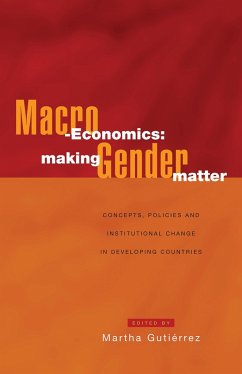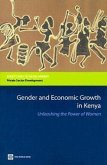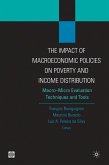Economic analysis grounded in a gender approach is beginning to enter mainstream economics. The discipline is recognizing that economic behaviour may be influenced by gender, and that gender discrimination is inherent in some macro-economic concepts. This work contributes to this analysis. It makes clear the biases arising from using statistical measures of the formal sector without examining the linkages between the productive and reproductive spheres, and the systematic gender biases present at all levels - in institutions, markets and the household. Its aim is a new framework that helps economic theorizing and policy making approximate more closely to real life. The contributors cover three broad areas - macro-economics and gender, gender and the state, and the institutionalization of gender in national and international organizations. Using original empirical material from Latin America, they explore a wide range of issues including the gender-differentiated effects of economic policy and public spending decisions; unpaid household labour; gender statistics; gender equality in planning and public policy; and the notion of economies as gendered structures.
This book makes clear that systematic gender biases are present at all levels - in institutions, markets and the household - and presents options for introducing social structures to the macro-economic agenda. The intention is to offer a new framework that brings economic theory and policy-making closer to the circumstances and motivations of real life economic agents. The contributors cover three broad areas - macro-economics and gender, gender and the state, and the institutionalisation of gender considerations in national and international organizations. Using original empirical material, in particular from Latin American countries, they explore a wide range of key issues. These include the gender-differentiated effects of economic policy and public spending decisions; unpaid household labour and its measurement; gender statistics; gender equality in planning and public policy; and the notion of economies as gendered structures. With backgrounds in a variety of disciplines, the authors go beyond a theoretical debate and place the practical realities of policy making centre stage. Their work should be relevant to development research and activity worldwide, while being particularly valuable in its emphasis on how state reform processes can advance a democratic development for women and men on equal terms.
This book makes clear that systematic gender biases are present at all levels - in institutions, markets and the household - and presents options for introducing social structures to the macro-economic agenda. The intention is to offer a new framework that brings economic theory and policy-making closer to the circumstances and motivations of real life economic agents. The contributors cover three broad areas - macro-economics and gender, gender and the state, and the institutionalisation of gender considerations in national and international organizations. Using original empirical material, in particular from Latin American countries, they explore a wide range of key issues. These include the gender-differentiated effects of economic policy and public spending decisions; unpaid household labour and its measurement; gender statistics; gender equality in planning and public policy; and the notion of economies as gendered structures. With backgrounds in a variety of disciplines, the authors go beyond a theoretical debate and place the practical realities of policy making centre stage. Their work should be relevant to development research and activity worldwide, while being particularly valuable in its emphasis on how state reform processes can advance a democratic development for women and men on equal terms.







